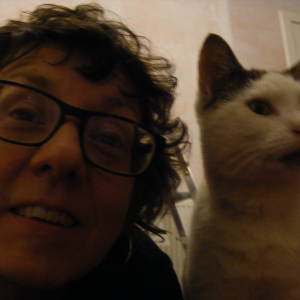Remembrance Sunday
(Photograph of the Falklands war memorial in Cathays Park, a Remembrance park which encompasses those who gave their lives in conflict to organ donors)
I have to state at the start, I hope today's blip doesn't cause offence, especially to those currently serving, and those ex-service folk whose journals I subscribe to. For your courage & dedication, I salute you.
I was listening to the Remembrance service in Whitehall on Radio 4 when Elgar's Enigma Variations came on. A beautiful piece of music, nonetheless, it made me cross enough to switch the radio off. It's a piece of music that celebrates a Britain that has long gone and which was the experience of a few anyway. I think it was because it made the situation seem slightly nostalgic, like a BBC costume drama, or even slightly celebratory in the manner of a Kipling poem. It just seemed to sentimentalise the reasons those who died in conflict.
Anyway, here's a poem from Tony Conran who has written an elegy in the style of the early medieval Welsh poem, Y Gododdin, which mourns the loss of 300 men in a battle and which Conran has translated.
'Elegy for the Welsh Dead, in the Falkland Islands, 1982'
Gwyr a aeth Catraeth oedd ffraeth eu llu.
Galsfedd eu hancwyn, a gwenwyn fu.
- Y Gododdin (6th century)
(Men went to Catraeth, keen on their company.
They were fed on fresh mead, and it proved poison.)
Men went to Catraeth. The luxury liner
For three weeks feasted them.
They remembered easy ovations,
Our boys, splendid in courage.
For three weeks the albatross roads,
Passwords of dolphin and petrel,
Practised their obedience
Where the killer whales gathered,
Where the monotous seas yelped.
Though they went to church with their standards
Raw death has them garnished.
Men went to Catraeth. The Malvinas
Of their destiny greeted them strangely,
Instead of affection there was coldness,
Mud and the wind's malevolent satire.
They stood nonplussed in the bomb's indictement.
Malcolm Wigley of Connah's Quay. Did his helm
Ride high in the war-line?
Did he drink enough mead for that journey?
The desolate shores of Tegeingl,
Did they pig his steel that destroyed him?
The Dee runs silent beside empty foundries.
The way of the wind and the rain is adamant.
Clifford Eley of Pontypridd. Doubtless he feasted.
He went to Catraeth with a bold heart.
He was used to valleys. The shadow held him.
The staff and the fasces of tribunes betrayed him.
With the oil of our virtue we have anonited
His head, in the presence of foes.
Philip Sweet of Cwmbach. Was he shy before girls?
He exposes himself now to the hags, the glance
Of the loose-fleshed whores, the deaths
That congregate like gulls on garbage.
His sword lashed in the wastes of nightmare.
Russell Carlisle o Ruthun. Men of the North
Mourn Rheged's son in the castellated vale.
His nodding charger neighed for the battle.
Uplifted hooves pawed at the lightning.
Now he lies down. Under the air he is dead.
Men went to Catraeth. Of the forty-three
Certainly Tony Jones of Carmarthen was brave.
What did it matter, steel in the heart?
Shrapnel is faithful now. His shroud is frost.
With the dawn men went. Those forty-three,
Gentlemen all, rom the streets and byways of Wales,
Dragons of Aberdare, Denbigh and Neath -
Figment of empore, whore's honour, held them.
Forty-three at Catraeth, died for our dregs.
- 0
- 1
- Nikon COOLPIX S220
- 1/50
- f/3.1
- 6mm
- 247

Comments
Sign in or get an account to comment.


